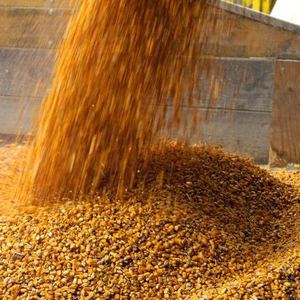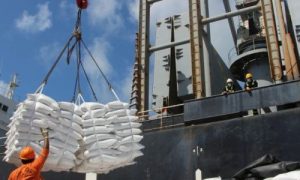Kazakhstan, Azerbaijan Deepen Agricultural Cooperation as Grain Exports Surge

Kazakhstan and Azerbaijan are deepening agricultural cooperation, with Kazakh grain now covering 88% of Azerbaijan’s imports. In early 2025, Kazakhstan exported 450,000 tons of grain worth \$95 million, up 86% year-on-year. Trade growth is supported by Caspian logistics, joint ventures, a \$300 million investment fund, and planned agribusiness and infrastructure projects.
ALMATY – Kazakhstan and Azerbaijan are strengthening agricultural ties, with high grain exports, expanded Caspian logistics and growing investment projects signaling the emergence of a broader agro-industrial partnership, reported Kazinform news agency on Aug. 27.
In the first five months of 2025, Kazakhstan became Azerbaijan’s leading grain supplier, exporting over 450,000 tons worth $95 million — an 86% increase compared to the same period last year.
“As a result, Kazakh wheat now accounts for 88% of Azerbaijan’s grain imports. Overall trade turnover between the two countries rose 20% in just four months,” said Kazakhstan’s Ambassador to Azerbaijan Alim Bayel.
According to Deputy Prime Minister and Minister of National Economy Serik Zhumangarin, between September 2024 and August 2025, Kazakhstan significantly boosted agricultural exports across the region. Shipments rose 34% to Uzbekistan, 47% to Tajikistan, 52% to Afghanistan, and more than doubled to Kyrgyzstan. Exports to Iran jumped 16 times, while deliveries to Azerbaijan soared 121 times, reaching 728,000 tons.
A strategic partnership for food security
Experts emphasize that Azerbaijan views Kazakhstan as a key partner in ensuring food security. Agricultural analyst Vahid Maharramov noted that Azerbaijan’s limited farmland and challenging climate constrain domestic grain production, making imports from Kazakhstan essential.
“Grain imports from Kazakhstan help stabilize prices for bread and fodder, supporting livestock and poultry farming. In return, Azerbaijan supplies Kazakhstan with fruits, vegetables, wine and processed food products, creating a balanced and mutually beneficial trade flow,” Maharramov said.
Looking ahead, he highlighted plans to establish joint ventures and invest in various projects. Azerbaijani companies are considering participation in Kazakh grain terminals and logistics hubs, while Kazakh investors are exploring greenhouse complexes and food-processing facilities in Azerbaijan.
Caspian logistics drive agricultural trade
The growth in agricultural cooperation is closely tied to the Trans-Caspian International Transport Route (TITR), also known as the Middle Corridor, which connects Kazakhstan’s ports of Aktau and Kuryk with Azerbaijan’s port of Baku.
In 2024, cargo volume along the TITR reached 4.5 million tons, a 62% increase compared to the previous year. Of this, 3.3 million tons passed through Kazakh and Azerbaijani ports, representing a 20% increase from the previous year.
Further expansion is expected with the 2025 launch of a multimodal terminal at Georgia’s Poti port, which will be constructed by a Kazakh company. Kazakhstan has also provided rail wagons to boost Azerbaijan’s logistics capacity, while both countries are advancing digitalization projects, tariff reforms and new shipping services on the Caspian Sea.
Investment and technology cooperation
In 2025, the countries launched a $300 million joint investment fund, registered at the Astana International Financial Centre, to finance projects in agriculture and beyond. Kazakhstan also announced plans for 683 agribusiness projects worth 3.4 trillion tenge (approximately US$6.30 billion) from 2025 to 2027.
Currently, based on data from the Bureau of National Statistics of Kazakhstan, 1,434 Azerbaijani companies and 217 joint ventures operate in Kazakhstan, focusing on grain processing, irrigation systems, agricultural machinery, fertilizers, and packaging.
Towards a long-term agro-industrial alliance
Analysts expect Kazakhstan and Azerbaijan to develop a full-scale partnership, integrating trade, logistics, investment and technology. However, challenges remain — particularly high transportation costs due to Kazakhstan’s grain-growing regions being located far from Caspian ports.
Both countries are working to address these issues by investing in logistics infrastructure, cold storage facilities and digital solutions to improve supply chain efficiency.
Overall, the expansion of cooperation in the agricultural sector between the two countries goes beyond traditional bilateral trade. It lays the foundation for a long-term strategic partnership aimed at enhancing food security, promoting technological exchange and supporting the sustainable development of agriculture across the region.
To Read more about Agri News continue reading Agriinsite.com
Source : The Astana Times
















